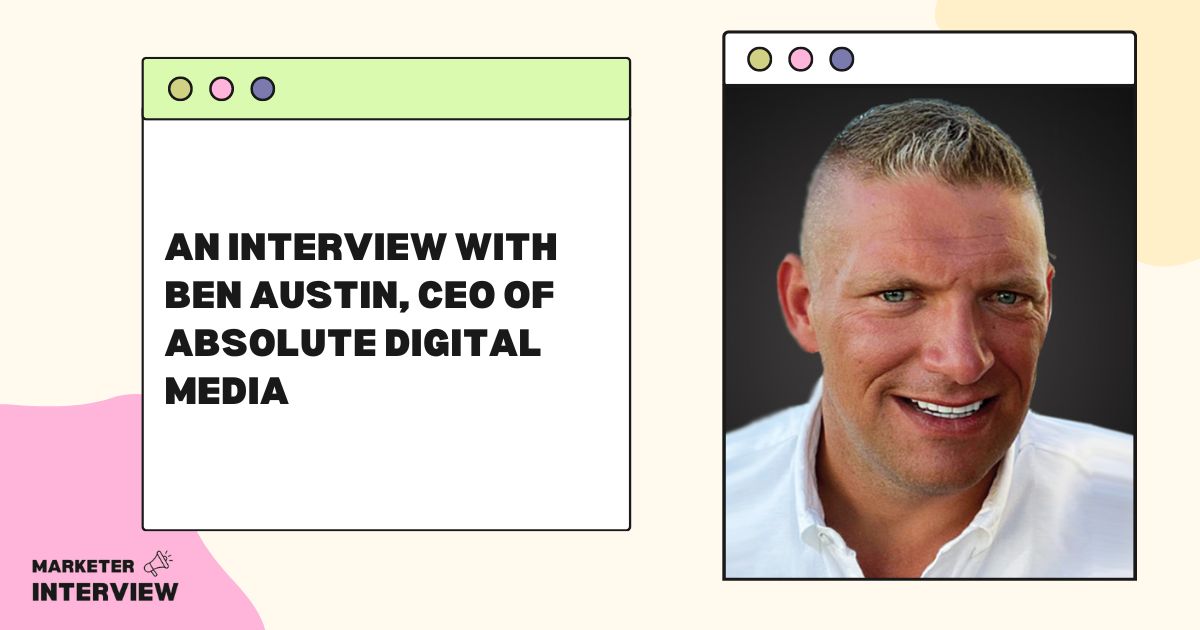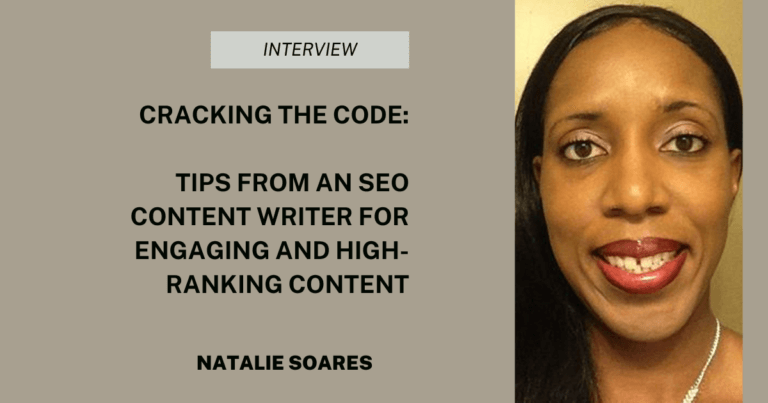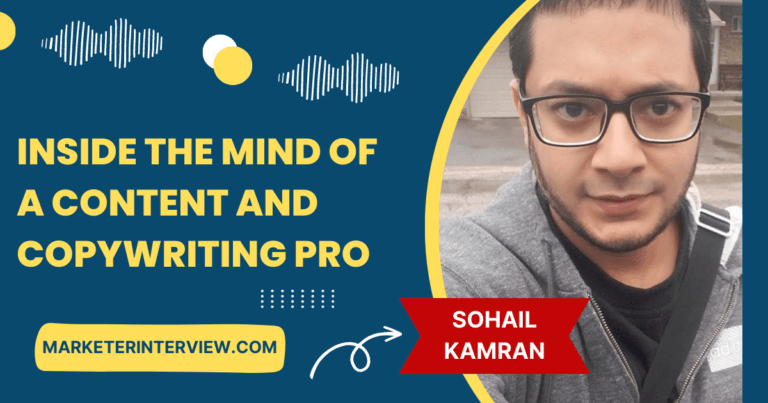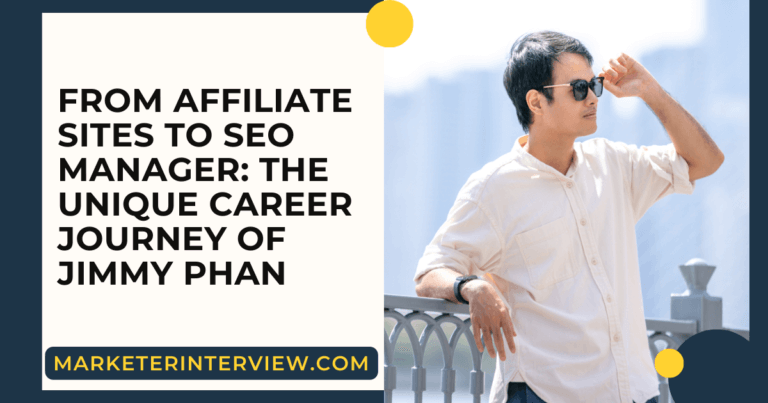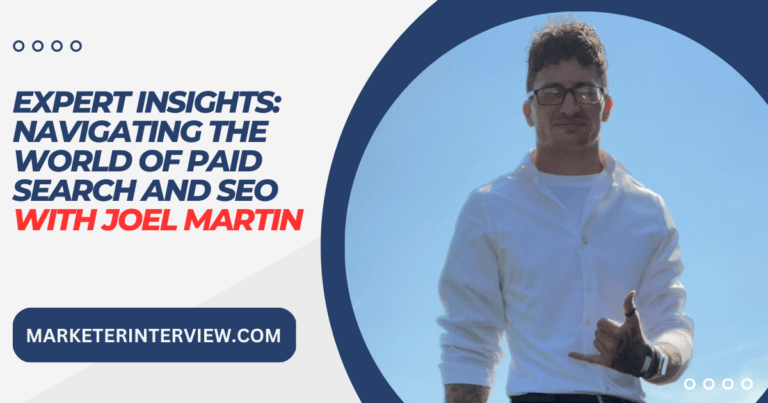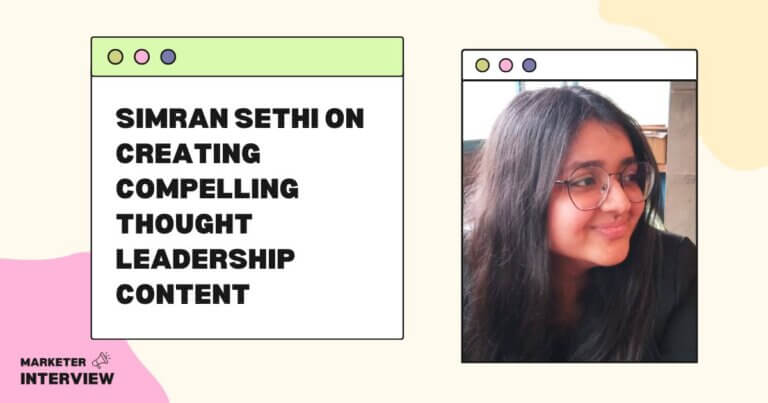An Interview with Ben Austin, CEO of Absolute Digital Media
Today, we have the pleasure of interviewing Ben Austin, the Founder and CEO of Absolute Digital Media, an award-winning digital marketing agency.
With over 14 years of experience in the industry, Ben has worked across various sectors and niches, including payday loans, gambling, adult, and pharma industries.
His agency’s success is attributed to its no pomp, no ego approach, which sets them apart from traditional marketing methods.
Ben is here to share his insights on SEO and leadership, as well as his career journey and tools of the trade.
Contents
- 1 Can you tell us about your career journey?
- 2 What are some of the biggest challenges you faced in your career?
- 3 What qualities do you think are essential for a successful leader?
- 4 What motivated you to start Absolute Digital Media?
- 5 Can you walk us through a recent successful SEO campaign you worked on?
- 6 How do you stay current with the latest SEO trends and algorithm updates?
- 7 Can you share your approach to digital PR?
- 8 How do you measure the success of your campaigns?
- 9 What are some of the essential tools and software that you use for your job?
- 10 What advice would you give to someone starting their career in digital marketing?
Can you tell us about your career journey?
My career journey in digital marketing began with my mortgage broker website.
After setting up the website, I hired a marketing agency to improve its visibility through a robust SEO campaign. Unfortunately, the campaign didn’t achieve the results I was hoping for, so I decided to teach myself SEO.
After a while, I got the website to rank number one for several critical finance keywords. My success in this endeavor led to the website being bought out by a leading comparison site that is still well-known today.
Encouraged by this success, I decided to set up my search marketing agency, which I continue to run to this day. My journey in digital marketing has enabled me to gain invaluable knowledge and experience in the field, as well as a deep understanding of SEO.
I am passionate about helping businesses reach their full potential through effective search engine marketing strategies. I look forward to helping more companies increase their revenue, grow their online visibility and improve their sales/leads coming through.
What are some of the biggest challenges you faced in your career?
One of the biggest challenges I faced in my career was setting up the business in 2008 during the financial crisis. As a solopreneur, I needed client buy-in without a website, which was difficult. This meant using different methods to reach customers and build trust.
Covid-19 was one of the most difficult challenges the business had ever faced. We needed to pivot quickly to provide support to clients facing similar issues, as well as the team.
This required a shift to expand the business to a digital marketing agency rather than an “SEO agency,” introducing services such as digital PR. This allowed us to keep up with the competition and ensure our services stayed relevant and up-to-date.
To overcome these challenges, I invested in training and development for the team and worked continuously to improve our services. I also worked hard to build client relationships, providing support and advice whenever possible.
We also started offering a free SEO audit to all new prospects who approached us to drive our sales when everyone was experiencing the same downfall. This allowed us to stay competitive and remain in business during a difficult period.
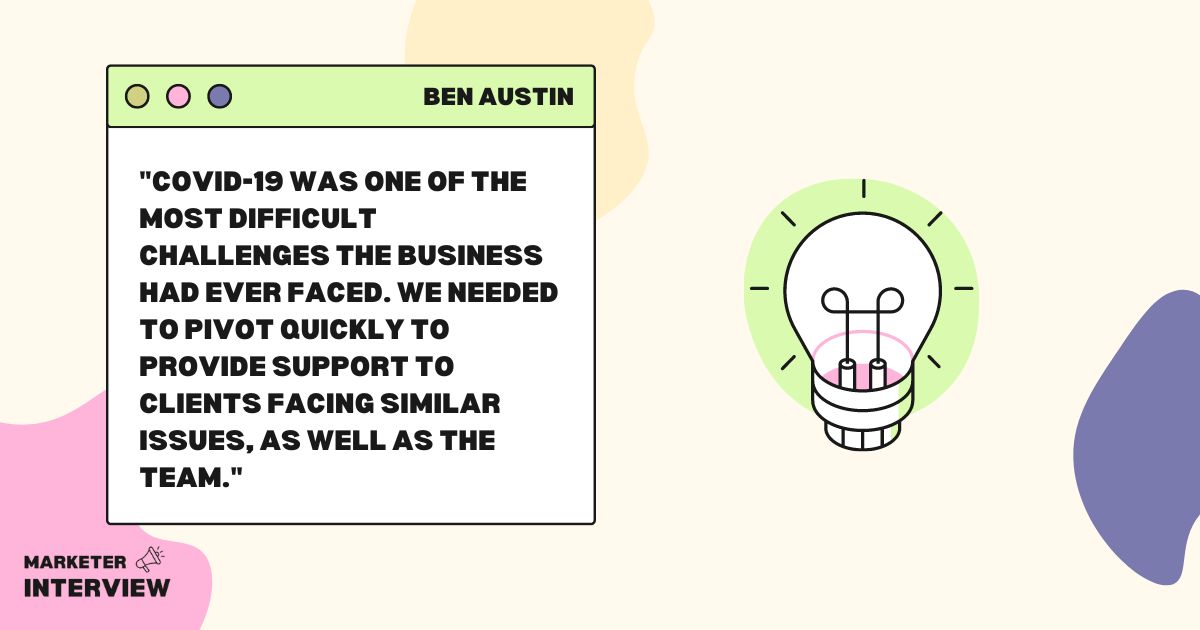
What qualities do you think are essential for a successful leader?
Leadership is taking a group of people and guiding them to a common goal. It involves setting the vision, creating a strategy to achieve it, and motivating your team to work together to get the job done.
You must be patient, forward-thinking, and accepting to be an effective leader. Patience is essential to handle the unexpected twists and turns that come with leading a team.
During the pandemic, there was so much uncertainty surrounding how the business would continue. Taking the leap to become a fully remote agency would never have crossed my mind until it was the only option.
Therefore, you have to be able to accept the unexpected and make decisions you may not have been prepared for.
As agencies constantly evolve, forward-thinking is essential to stay ahead of the competition. The need for robust marketing strategies is becoming more apparent to small and big businesses. To do this, you must be open to new ideas and willing to take risks.
Accepting is also crucial. Not everything will go to plan, and that is ok.
As a leader, you must celebrate small successes and use them to move forward. This will help your team stay motivated and give you a better chance of achieving goals.
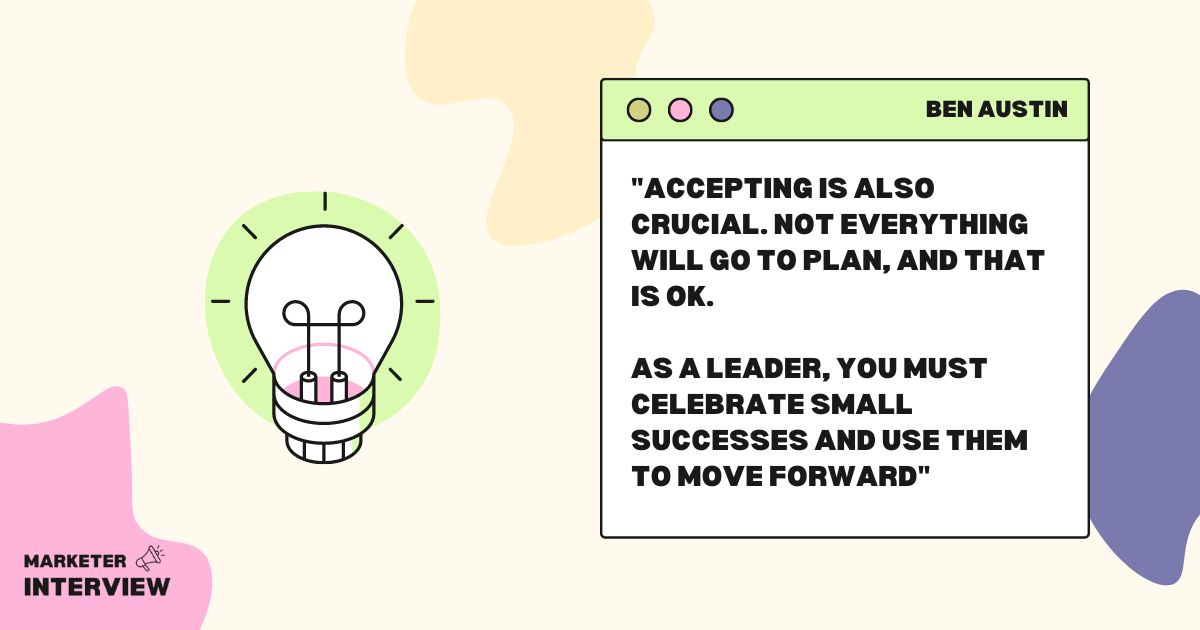
What motivated you to start Absolute Digital Media?
My success with my mortgage broker website motivated me to start Absolute Digital Media.
It has evolved since its inception to become a leading search marketing agency, helping businesses increase their revenue, grow their online visibility and improve their sales/leads coming through.
In 2010, we became a full-service agency, offering various digital marketing services to our clients. In addition, we introduced digital PR as a service in 2020, allowing us to reach even more customers.
We have a fully remote workforce, with staff located worldwide, and we have grown from just a handful of staff to 30 staff. We are focused on helping businesses reach their full potential through effective search engine marketing strategies.
Can you walk us through a recent successful SEO campaign you worked on?
Recently, I worked on a successful SEO campaign for Stelrad, a leading manufacturer of radiators. My strategy was to improve their organic search visibility while addressing technical issues.
After carrying out a performance audit, we identified several areas of opportunity that needed to be addressed to expand Stelrad”s visibility. This included page title and metadata optimization, internal linking, resolving conflicts, and improving the website’s technical health and flexibility/crawlability.
Additionally, our content audit revealed serious cannibalization across category and product pages, limited pre-existing content, and no context provided on the main category pages.
To address these issues, we established a strategy prioritizing the areas we would work on, ranging from highest to lowest priority. This gave us a chance to gain some initial traction.
Furthermore, we developed a robust outreach strategy to increase the website’s inbound links to essential target pages, aiming to boost sales and ROI for our broader marketing efforts.
We also created 154 new content pages across all categories and all range pages to improve targeting and provided recommendations on URL restructuring to improve the site”s UX.
How do you stay current with the latest SEO trends and algorithm updates?
Staying current with the latest SEO trends and algorithm updates requires a continuous effort. Therefore, I check news sites such as Search Engine Land and Search Engine Journal for the latest updates.
I also use social media platforms like Twitter and LinkedIn to stay abreast of the latest trends. Furthermore, I use SEO tools such as Semrush and Sistrix to monitor the latest changes in the industry.
Lastly, I read through the articles published by Google to stay informed and act ahead of other Google updates. For example, in the March Broad Core Algorithm update, the article enabled us to check certain factors of our client’s websites to ensure they experienced minimal impact.
Digital PR is an essential part of our overall marketing strategy, and we take a comprehensive approach to ensure our campaigns are successful.
We start by holding regular ideation sessions, both company-wide and within the digital PR department, to generate fresh and creative ideas.
We also use our internal database of past campaigns to analyze the success and failure rates and uncover possible new angles to explore.
Once we have identified potential topics, we run a comprehensive audit of our on-site content, blogs, and guides to see how we can use them to form the basis of our campaigns, whether a tip-based campaign, an interview-style piece, or a creative data-led campaign.
We also regularly conduct competitor analysis audits to discover organic link opportunities, inform our outreach strategy and gain further insights into our target market.
We also take advantage of journo requests and can quickly respond to news stories and events to news jack and react to current affairs.
Our digital PR strategy is closely linked to our SEO and PPC strategies. We use our audit of on-site content to identify keywords that are both competitive and non-competitive, helping us to understand opportunities for improved ranking better.
We use social media to distribute and publicize our campaigns, results, tactics, and learnings, which helps us to attract journalists and potential clients to our press releases.
We also hold regular internal meetings between relevant departments to identify any critical changes in SEO, PPC, and PR, so we can adjust our focus if necessary.
How do you measure the success of your campaigns?
The success of our campaigns is measured through a variety of different metrics.
We track organic keywords, organic visibility, traffic, leads, and sales for SEO.
We track reach, engagement, leads, and sales for social media campaigns.
We track opens, clicks, leads, and sales for email marketing campaigns.
Through these metrics, we can evaluate how our campaigns are contributing to the growth of our clients and driving profit through new revenue streams that can be used to assess its impact.
What are some of the essential tools and software that you use for your job?
Google Analytics: We use it to measure the performance on the site, so we can ensure that our work provides the desired results.
It also allows us to get more granular information, such as which pages are performing well if pages are leaking users, and which products/pages convert better, which we can then use to base decisions on.
MS Clarity – similar to Google Analytics, this is used to view user behavior on the site. For example, we can see how users interact with the site using a heat map.
From that behavior, we determine what areas they are finding problematic and what areas they respond to. We can then use that to optimize conversions and user experience across the site.
Semrush: We use it to track keyword rankings to monitor the performance of essential keywords in the campaign and respond quickly if anything changes.
We also use this to audit sites. It has a tool that crawls the site and reports on SEO errors. This makes it easy for us to identify issues, fix them, and improve the site’s performance.
Finally, we can use this to gather information from other sites, such as which keywords they rank for and which pages rank for them, which can help us benchmark the performance of our campaigns and identify opportunities.
We also use it to gather information on keywords such as search volume and SERP features which help us identify the keywords to target to drive the most benefit for the campaign.
Screaming Frog: similar to Semrush but just for the site auditing side of it. But whereas Semrush gives you the data in pre-designed reports, Screaming Frog just gives you all the data.
This is great for when you need to review elements that Semrush may not report on or to check setups of things that might be technically correct but set in error.
What all these tools have in common is they provide data. Of course, how we use the data depends on what it is and what we’re trying to do. But they provide data allowing us to make more informed decisions.
What advice would you give to someone starting their career in digital marketing?
My advice for someone starting their career in digital marketing is to think about what makes them stand out as an individual.
I was recently doing a job interview for a position we had open in our SEO team. The interviewee showed so much passion and joy surrounding the topics we discussed and spoke with so much enthusiasm.
I almost knew then that he would be the perfect fit for the company. He stood out from all the other candidates by their enthusiasm.
It is also essential to consider what digital marketing stream they would like to work in, as there is more to digital marketing than what meets the eye (SEO, digital PR, social media, PPC, etc.).
They should also understand that the digital marketing landscape is continually changing and requires them to stay updated with the latest trends and techniques to stay ahead of the curve.
Additionally, consider whether they would rather be a part of an agency or an in-house team, as there are positives to both. Still, it ultimately depends on their preferred work environment. For example, would they like to work with one brand on their campaigns or multiple for a range of businesses in different industries within an agency setting?
